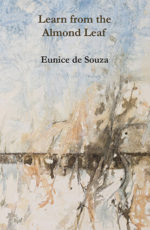-
Learn from the Almond Leaf
$10About the Book
In these her late poems, the volcano that is Eunice de Souza is still erupting. As in her early work too, what she here ‘upchucks’ is lava, molten lines that burn and glow and leave a permanent mark. The tone, as before, is casual, bantering, close to the spoken idiom that is uniquely hers. When terrible things happen the tone changes, quickens, then relaxes again. Life is bemusing, ludicrous; death even more so. In the work of no other poet I can think of do you find such brevity and grandeur, swiftness of utterance and the unbearable weight of grief, unbearable because de Souza is so dry-eyed. ‘The crone’s still capable/of spite’ she writes in one poem, the old necklace-of-skulls self-irony intact, except that in her case ‘spite’ also means ‘wisdom’. It is easy to forget that the crone is deeply moral as well, and like any moral being she too feels that she’s lived ‘In the wrong season.’ There is plenty in these spare but unsparing poems to remind us of the classical virtues we associate with Bhartrhari, for instance, or a Latin epigrammatist like Martial. These are poems to live by. In time, they will come to be seen as classics of our literature, as many of her earlier poems already are. Arvind Krishna Mehrotra


